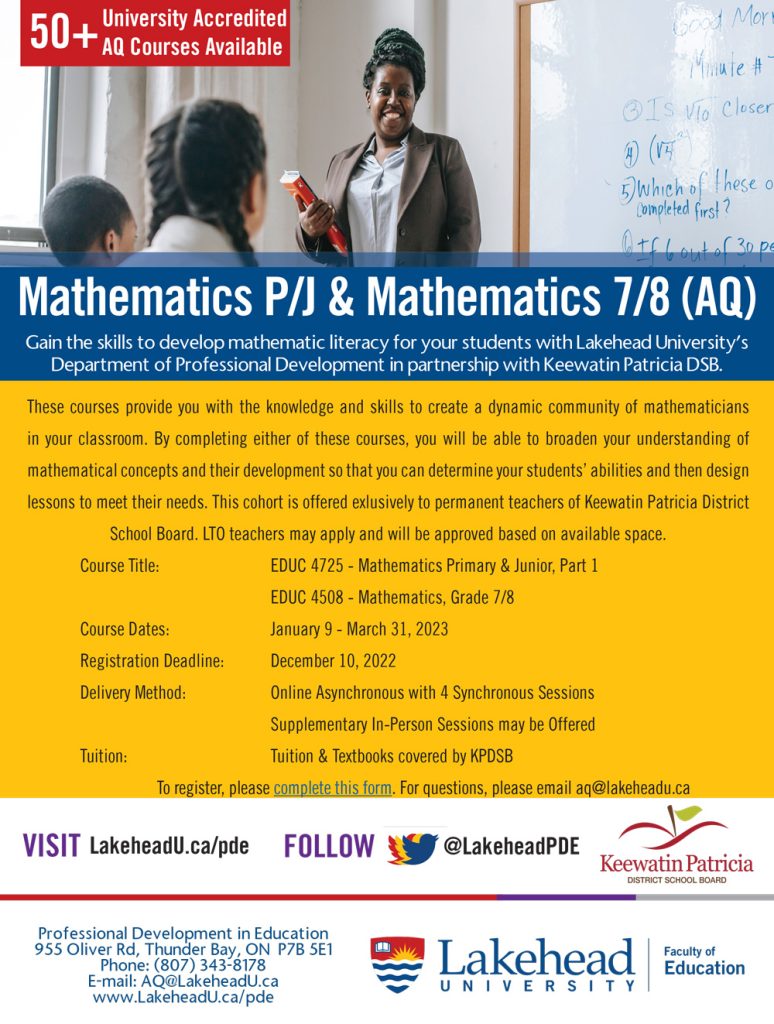Early Years
Our Early Years program at Keewatin-Patricia prioritizes supporting our youngest learners. Kindergarten classrooms and our partnership with Kenora District Services Board childcare programs are the heart of the programs supporting our youngest learners. Both our kindergarten and childcare programs focus on providing a solid foundation for all children to be successful throughout their educational careers, and beyond. Our kindergarten classrooms provide rich learning opportunities in literacy and numeracy throughout the day. These experiences align with each child’s individual development and consider the social and emotional needs of the child. The program is intended to meet each child where they are in their learning journey and provide experiences and support that will enable all children to move along their path, at their pace. New to our kindergarten classrooms is the addition of explicit instruction in foundational literacy skills. We have incorporated evidence-based teaching practices and resources into our literacy programming with the goal of all our students reaching all their milestones and their full potential.
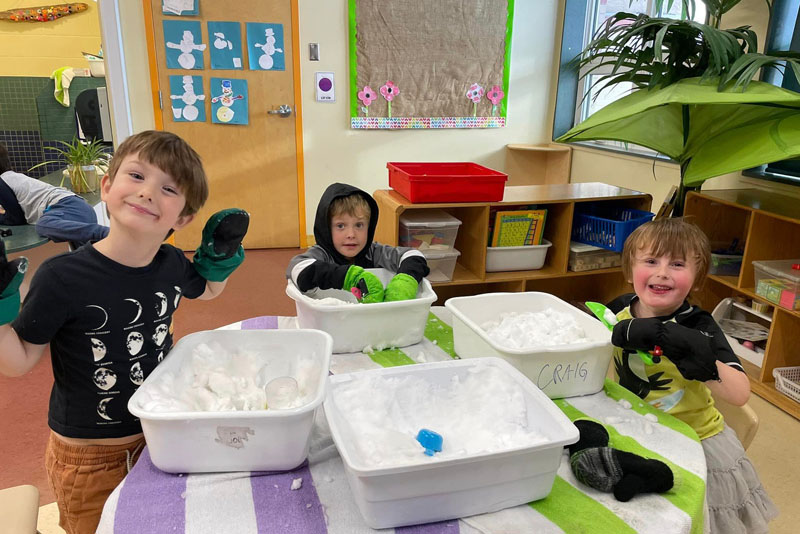
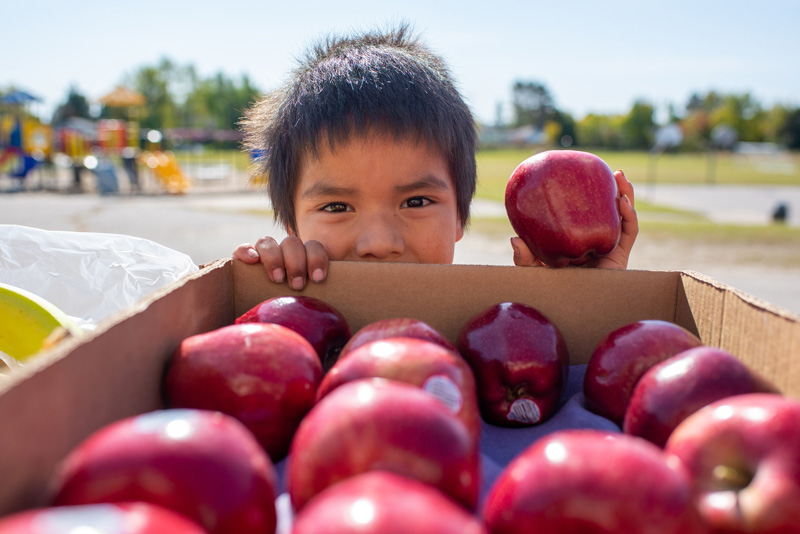
Our kindergarten educators are the leaders in the classrooms. As dedicated, passionate staff, their priority is to foster the curiosity, creativity, and capability of each child. The teacher and early childhood educator team work together to guide learning through authentic, hands-on opportunities accessible and engaging to all students. Children have the opportunity to take their learning outside the classroom and connect with the land and nature and reap the benefits of the fresh air and sunlight. Careful consideration is put into all areas of teaching and learning to ensure we offer an experience that is supportive, relevant, and responsive to the physical, emotional, social, and cultural needs of all our children.
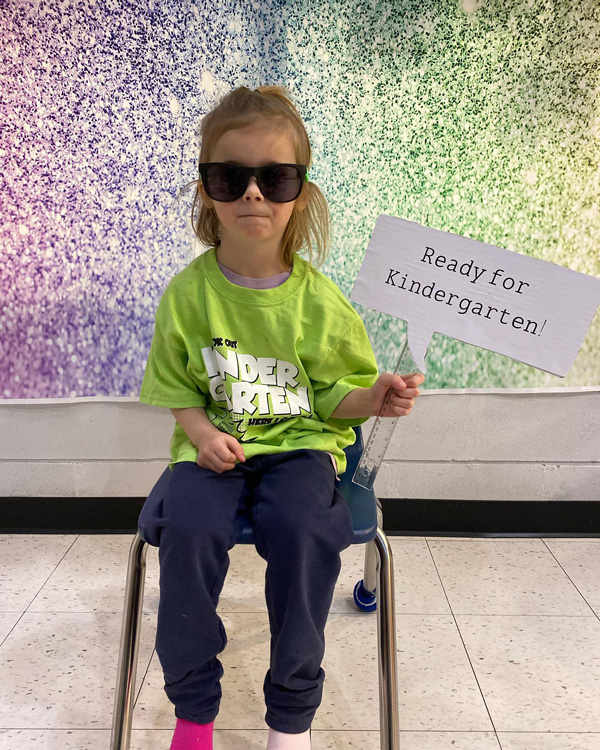
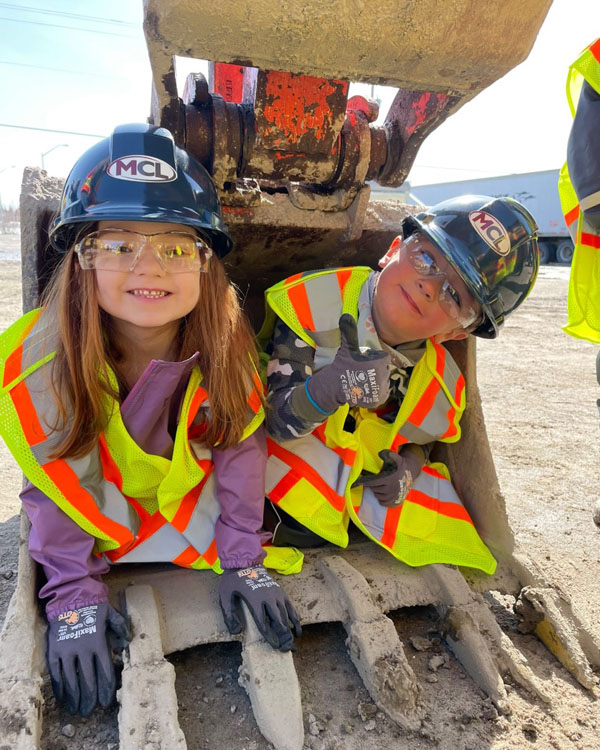
Our partnership with childcare providers throughout the region is strong. Together, we can create environments conducive to where the children are in their learning and development and provide a smooth transition from the childcare setting to the school system. As educators, we collaborate, learn together, and share best practices. This united approach to our children enables our efforts to stay focused on the whole child. Keewatin-Patricia is grateful for the opportunity to work closely with our childcare providers to fully support and provide service to our families throughout the district.
In addition to English programs in all our elementary schools, we also offer French Immersion kindergarten programs at Valleyview Public School in Kenora and New Prospect Public School in Dryden. Children enrolled in these programs are immersed in the French language 100% of their classroom day, beginning in the first year of the program. This rich language environment provides children with a solid foundation in their second language while complementing the growth of their English language skills.
Right to Read
The Ontario Human Rights Commission (OHRC) released its report on its Right to Read public inquiry in the spring of 2022.
The review started in October 2019 and examined human rights issues that affect students with reading disabilities in Ontario’s public education system. KPDSB was one of the eight sample school boards selected for the inquiry.
The Right to Read inquiry, which focused on early reading skills, found that Ontario’s public education system is failing students with reading disabilities (such as dyslexia) and many others by not consistently using evidence-based approaches to teach them to read.
The Right to Read inquiry report highlights how learning to read is not a privilege but a basic and essential human right. The report combines research, human rights expertise, and lived experience of students, parents and educators to provide recommendations on curriculum and instruction, early screening, reading interventions, accommodation, professional assessments, and systemic issues. The Right to Read report includes recommendations to the Ministry of Education, school boards, and faculties of education on how to address systemic issues that affect the right to learn to read, including:
- Adopting a new kindergarten program and grades 1 to 8 language curriculum that features direct and systematic instruction in foundational reading skills and preparing current and future teachers on evidence-based approaches to teaching students to read
- Screening every student, at least twice a year from kindergarten to grade 2, to identify students at risk for reading difficulties using standardized, evidence-based screening tools
- Standardizing and providing stable funding for evidence-based reading interventions
- Making access to interventions equitable for all students
- Providing and supporting timely and effective accommodation, including greater access to evidence-based software and assistive technology
- Improving access to professional assessments and ensuring greater consistency and transparency in the assessment process
- Setting clear and consistent standards for school boards and mandating better data collection, analysis, and reporting
- Improving communication with students and parents
- Working with experts in the science of reading to implement the OHRC’s recommendations
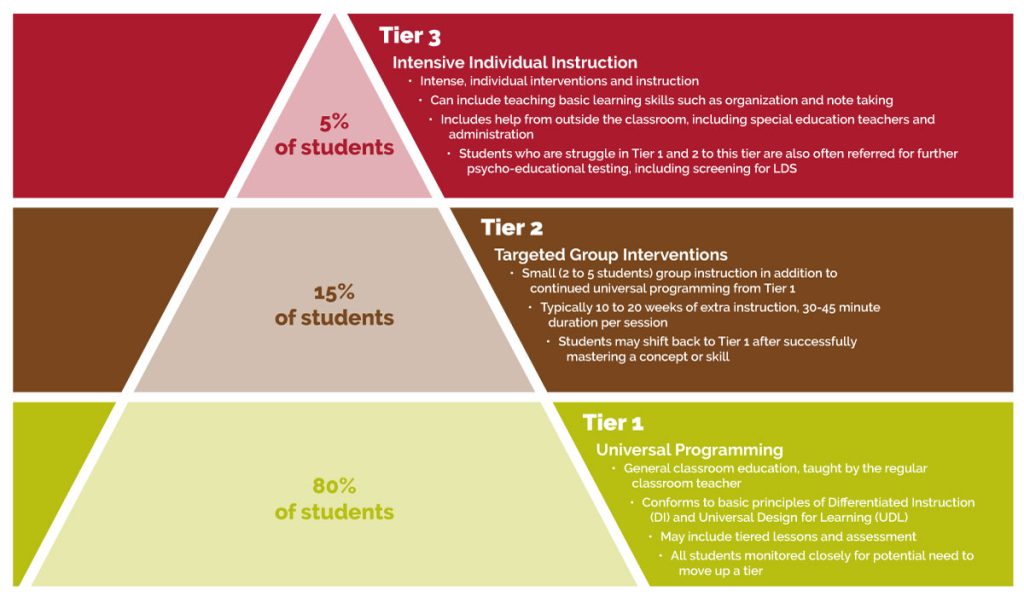
KPDSB Actions to Date:
- Redesigning the program ahead of the Right to Read recommendation report, including removing curriculum and special education from silos, to take a coordinated approach to teaching and learning
- Implementing explicit instruction in phonological/phonemic awareness to the full system: kindergarten to grade 2
- Implementing a literacy screening tool
- Instructing phonics explicitly beginning in kindergarten
- Changing from using “balanced literacy” books (based on the three-cueing system) to decodable books for all kindergarten to grade 2 students and as a tiered instruction support for students in grades 3–8 and beyond
- Redefining the role of Reading Intervention Teachers and Special Education Resource Teachers
- Providing multi-tiered support for students, beginning with a focus on quality tier 1 instruction
- Providing administrator and teacher professional development on a structured literacy approach
- Providing tutoring supports
- Providing schools with focused support(s)
- Having designated schools with dedicated reading intervention support· Having additional Special Education Resource Teachers in designated schools
Destream Grade 9 Courses
KPDSB is committed to the successful destreaming of grade 9 compulsory courses. Beginning with math in September 2021, all secondary schools now offer inclusive grade 9 compulsory courses. Targeted professional learning focused on equity, curriculum, learner profiles, and building capacity for differentiated instruction and assessment has been ongoing. Teams of writers came together over the summer to curate, create, and share resources aimed at a broad range of learners. With a focus on rich-task design, multiple entry points, and student engagement, each of the five compulsory courses now has a bank of resources to guide teachers in their planning and assessment of destreamed courses.
KPHits is a document centrally created that was shared with teachers to ensure that all KP teachers have a shared understanding of high-yield instructional strategies to support student achievement. Teachers will continue to have opportunities to meet as cross-panel teams to collaborate on student transition from grade 8 to grade 9 and to ensure student success.
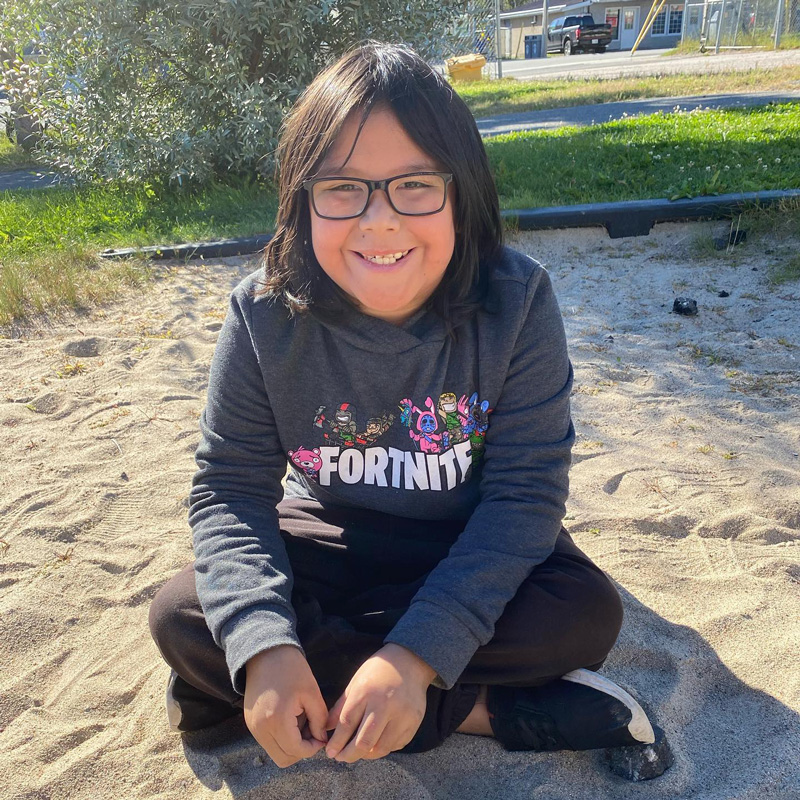
Dual Credits
KPDSB and Confederation College continue to run dual credit courses that count as credits toward both the Ontario Secondary School Diploma and a postsecondary certificate, diploma, degree, or Certificate of Apprenticeship.
Students taking a dual credit learn with a college instructor and a secondary teacher in their school. Supporting student transition to post-secondary, students also have access to college services and supports they wouldn’t otherwise.
The majority of KPDSB dual credit programming runs in the second half of the school year. However, in the first half of the 2022–2023 school year, we are running four college-delivered programs — Welding T-Joints/Manufacturing Technology and Introduction to Carpentry/Renovations at Beaver Brae Secondary School, Wellness for Life at Sioux North High School, and a virtual Human Relations course available to all KPDSB schools.
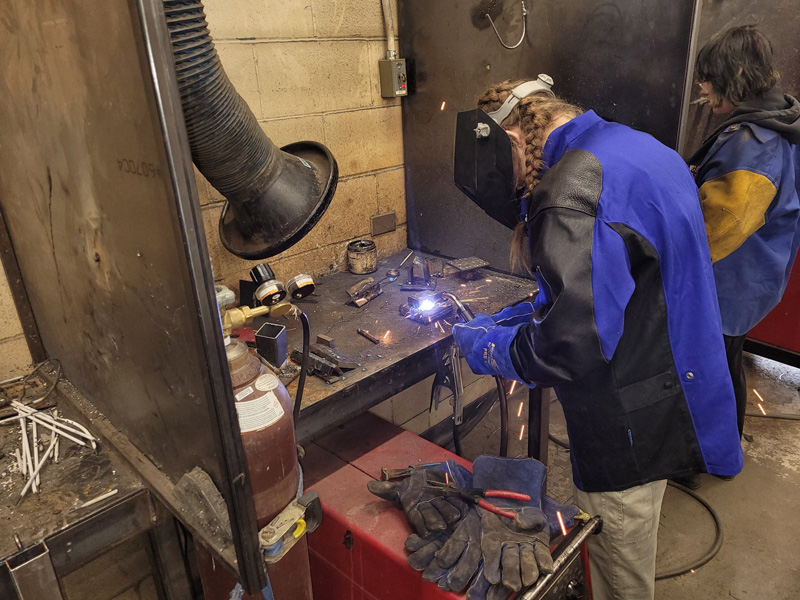
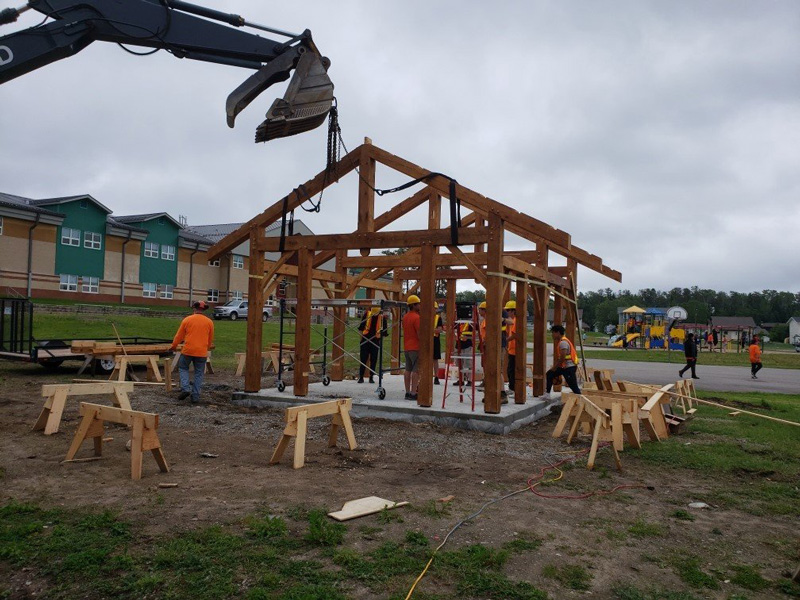
eLearning
Beginning with every student who entered grade 9 in the 2020–2021 school year, students must earn two online learning (eLearning) credits to graduate from secondary school. This graduation requirement is intended to support students in developing familiarity and comfort with learning and working in a fully online environment, as well as developing digital literacy and other important transferable skills they will need for success after secondary school, including in post-secondary education and the workplace.
The exception is for students who were in grade 9 during the province-wide school closures (from April 2021 to June 2021). Up to one secondary school credit completed at this time may be counted towards the graduation requirement in recognition of the extraordinary circumstances of the COVID-19 pandemic. This cohort of students will only require one additional eLearning credit. There is a process for parents who wish to opt out or exempt their child from the online graduation requirement that includes submitting the KPDSB eLearning Student Opt-Out form.
KPDSB is well-positioned to support students to meet the graduation requirement and be successful. A technology-enabled learning teacher supports eTeacher professional learning and other technical needs eTeachers have. In addition, KPDSB is a member of the Ontario eLearning Consortium, a collective of 55 Ontario school boards that opens their eLearning courses to all students throughout member boards without a course fee. This affords our students a significant menu of learning programs they wouldn’t otherwise have access to at their home school.
Specialist High Skills Major (SHSM)
Specialist High Skills Major programming can help students develop specialized knowledge and skills in a specific sector; gain certification, training, and industry-recognized credits; transition more easily into a sector or field; and engage in activities and experiences in the field that support innovation, creativity, and entrepreneurship.
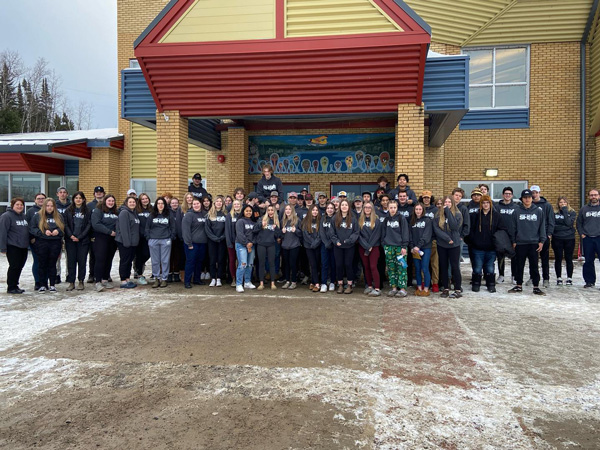
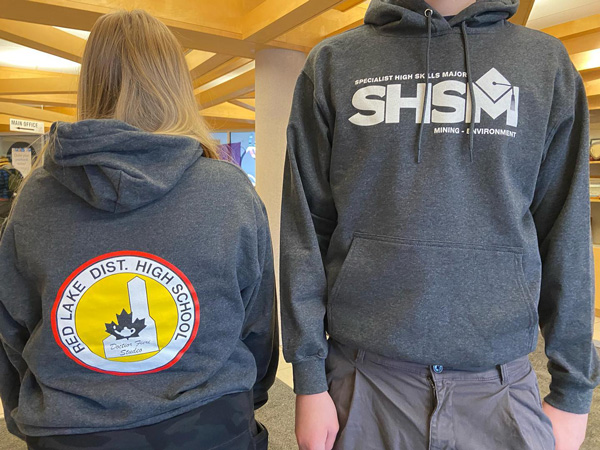
KPDSB is now running 18 Specialist High Skills Major programs, with one new program for 2022–2023 — Hospitality and Tourism in Red Lake. Our program enrollment is currently 370 grade 11 and 12 KPDSB students, and we continue to explore opportunities that are reflective of our students’ strengths and interests and that support equity of opportunity for students. Our program completion rates are in step with provincial trends, and 4 of our school programs had a 100% completion rate last year. KPDSB received expansion funding for 2022–2023 for course provision in Technological Education and Cooperative Education, system innovation monies for a Specialist High Skills Major Itinerant Technology Teacher, and for a school-based Innovation Project at Ignace School and Dryden High School.
Pathways
The Keewatin-Patricia District School Board has a goal that all students have the skills, knowledge, and confidence to be successful grade to grade, and have positive transitions into secondary school and from secondary school to their initial post-secondary destination.
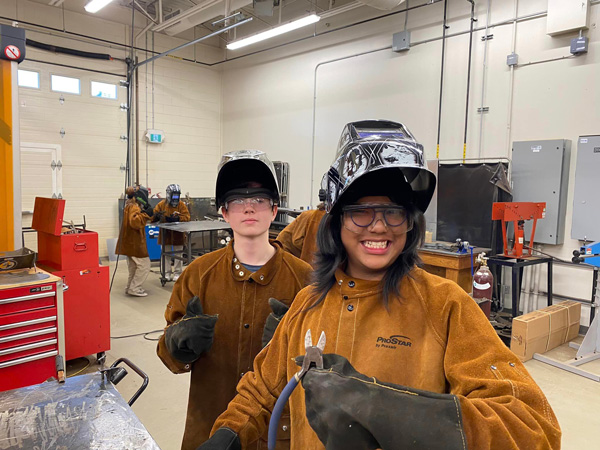
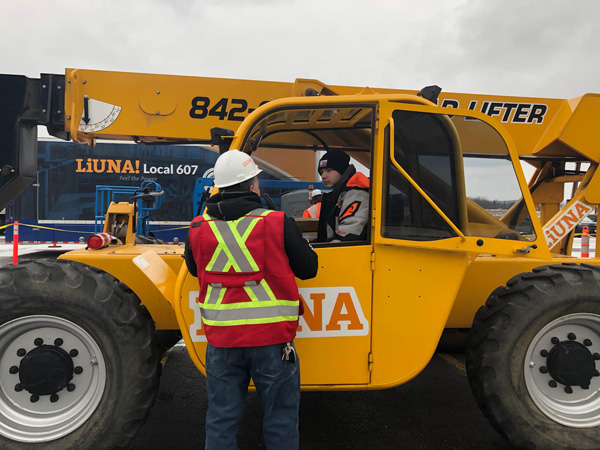
Elementary Guidance/Pathways teachers assigned to the areas of Kenora, Red Lake (incl. Ear Falls), Dryden (incl. Vermilion Bay), Sioux Lookout, and then the combined areas of Pickle Lake, Savant Lake, Ignace, and Upsala ensure that intermediate students receive Pathways programming and the needed information to make informed decisions about choosing courses and programs in secondary school. Secondary guidance counsellors support students in high school with pathway planning.
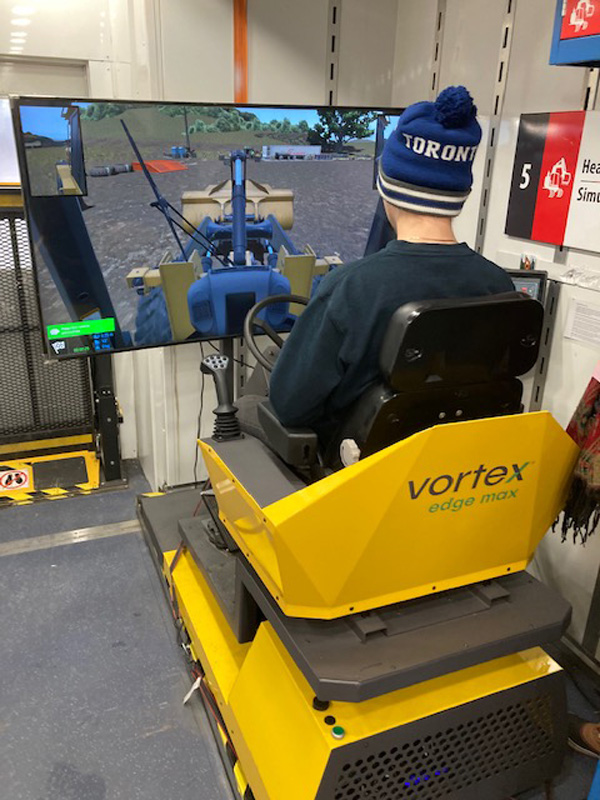
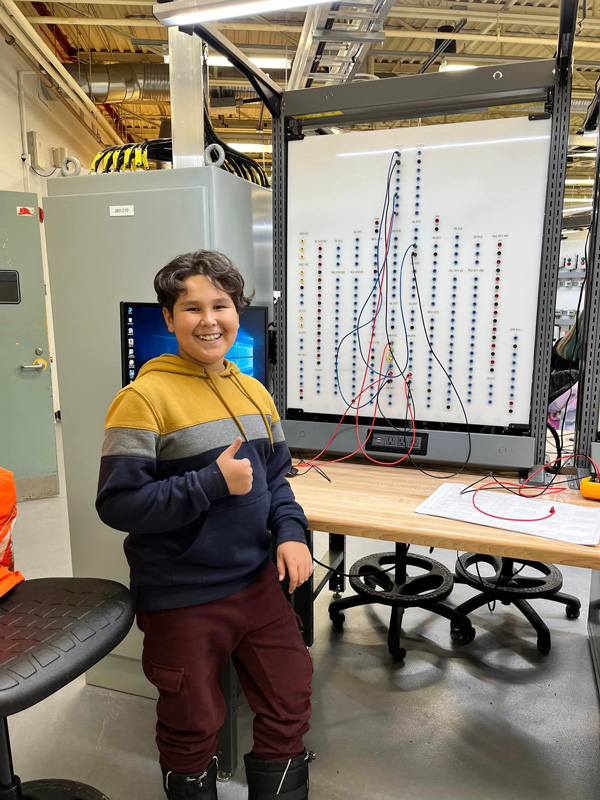
Elementary Guidance/Pathways teachers advocate for students to help them overcome challenges they may face in academic achievement, well-being, engagement in school, relationships, attendance, and all barriers interfering with learning and success in secondary school. They support the Individual Pathways Plan (IPP) completion for all grades 7 and 8 students. They also help students identify their personal interests, strengths, needs, and aspirations and use this knowledge of themselves to make informed choices of programs and provide learning opportunities. These teachers provide experiences for students to learn more about all postsecondary destinations — apprenticeship training, college, community living, university, and the workplace. The Elementary Guidance/Pathways teachers also support grade 8 transition to high school. They work collaboratively with Secondary Guidance, Graduation Coaches, Student Success, SERTs, and Administrators. While the grade 8 transition can be difficult for students, many of those challenges can be addressed by providing:
- supports that encourage fresh starts or changing attitudes towards school;
- supports for positive social development and making friends;
- time to get acquainted with new schools and new peers;
- supports for meaningful and sustained cross-panel conversations and programs;
- cross-panel transition teams and caring adults; and
- positive school cultures and climates.
It is important to support student transitions and understand and focus on both risk and protective factors during this critical time.

Experiential Learning
Experiential learning (EL) is hands-on learning that occurs in person or virtually and provides developmentally appropriate opportunities for students of all ages to participate in rich experiences connected to the world outside of the school, reflect on the experiences to drive meaning, and apply the learning to their decisions and actions.
EL opportunities allow students to see the relevance of their classroom learning and its connection to the broader world. These opportunities also help them develop transferable and interpersonal skills and work habits that prepare them for their future and enable them to explore careers of interest as they plan their pathway through school to their postsecondary destination, whether in apprenticeship training, college, community living, university, or the workplace.
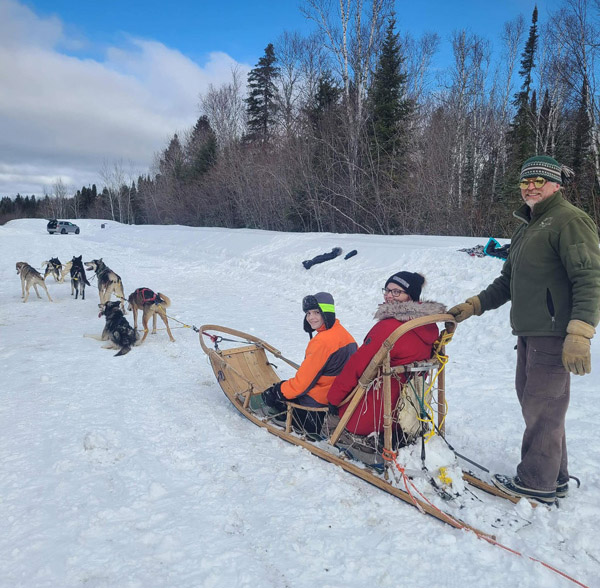
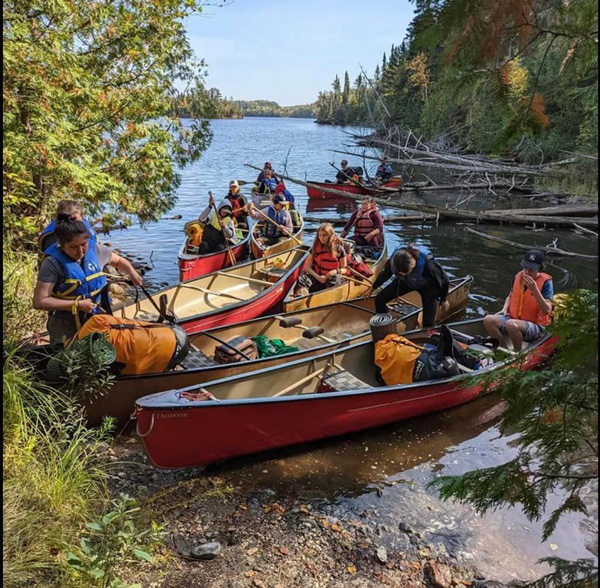
Traditionally, EL is looked at through the lens of skilled trades, the Ontario Youth Apprenticeship Program (OYAP), Specialist High Skills Major (SHSM), and Co-operative Education (Co-op), all of which provide students with opportunities, skills, and engagement that help make learning “stick.” During the 2021–2022 school year, EL at KPDSB was also explored through the lens of Indigenous education, which is inherently experiential, through outdoor and land-based learning opportunities. Land-based learning benefits Indigenous and non-Indigenous students alike. Experiences in land-based learning are rooted in relationships and community-based learning, moving from engagement for learning to empowerment from learning for students.
Project-based learning was at the centre of Experiential Learning at KPDSB. Projects ranged from career exploration to curriculum-centred learning to community-based connections. These projects covered a range of areas, including, but not limited to:
- Learning about special effects and theatrical make-up;
- Experiential Literacy through outdoor cooking;
- Harvesting wild animals with Knowledge Keepers;
- Connecting with local community partners to create a community garden; and
- Forestry and tree planting exploration with community partners.
Projects were rooted in experience and connecting with the community. Students left each of these experiences with additional positive adults in their growing networks. Research shows the importance of expanding students’ networks, as it contributes to their likelihood of gaining meaningful employment after graduation.
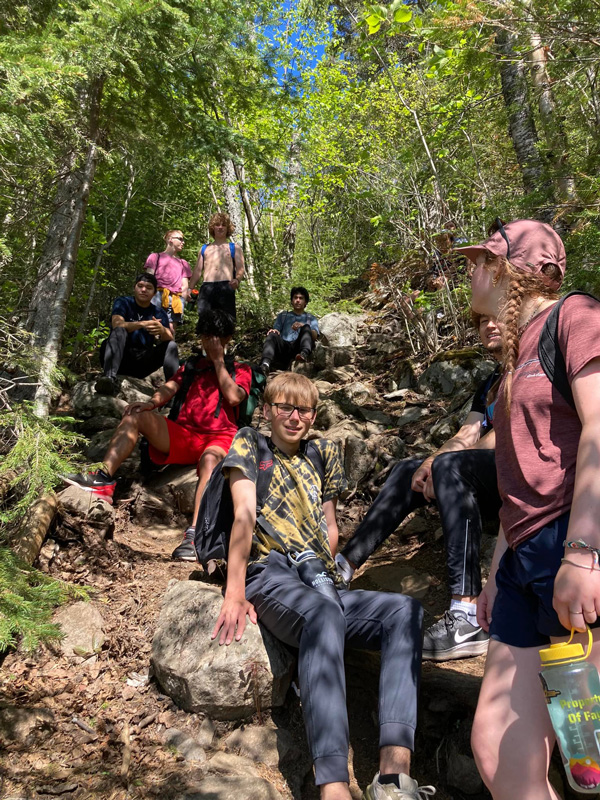
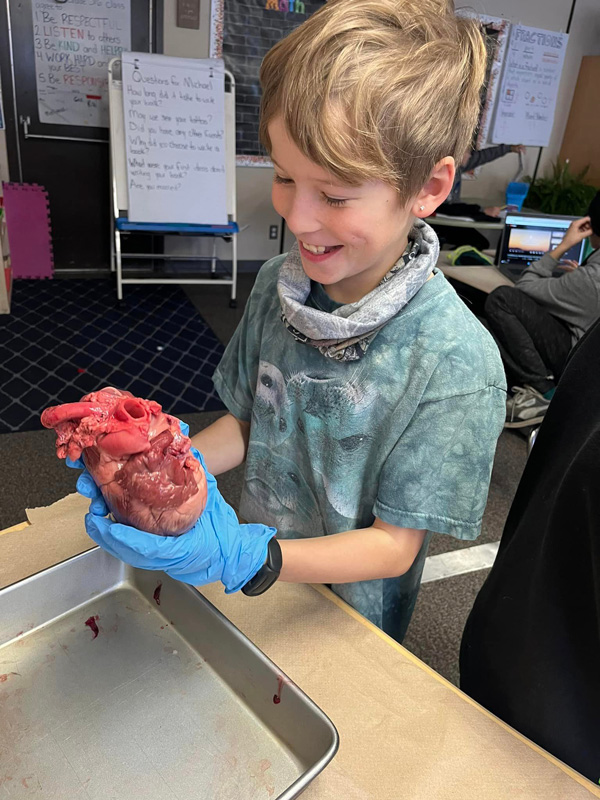
The KPDSB Experiential Learning projects supported both new and experienced educators alike. Support was provided to educators interested in adding experiential learning to their classroom practice. Learning conversations and networking allowed KPDSB teachers to share ideas, experiences and resources.
Impact on Learning
Experiential Learning creates opportunities for learning that “sticks.” Academic rigour remains a pillar in Experiential Learning work. Experiential Learning at KPDSB is not based on one-off field trips or experiences. Rather, it is focused on using the Experiential Learning Cycle, which allows students to reflect and apply their new knowledge. Reflection allows students to “think about their thinking” or use metacognition. This often leads to richer learning and results in higher student achievement.
Students document their learning during these Experiential Learning opportunities through photos, voice memos, videos, and writing. Before and after these experiences, students reflect and apply what they have learned and lean on their observations/learning to create final products and support assessment conversations.
Although Experiential Learning pedagogies are new for some educators and classes, other educators within the KPDSB have been using Experiential Learning as a cornerstone of their programs for years. Teachers invite community partners into the classrooms or take their learning outdoors and within the community. Students learn from community experts, Elders, and Knowledge-Keepers while boosting academic engagement and success for students.
Through relationship building, instructional coaching, at-the-elbow support, and sharing best practices, KPDSB schools will continue to see an increase in experiential learning. This exciting work benefits student academic outcomes and strengthens educator pedagogies. KPDSB is continuing with this work with a focus on engagement for learning, leading to empowerment from learning, through land-based, outdoor and experiential learning. We look forward to continued success in this area of learning for KPDSB.
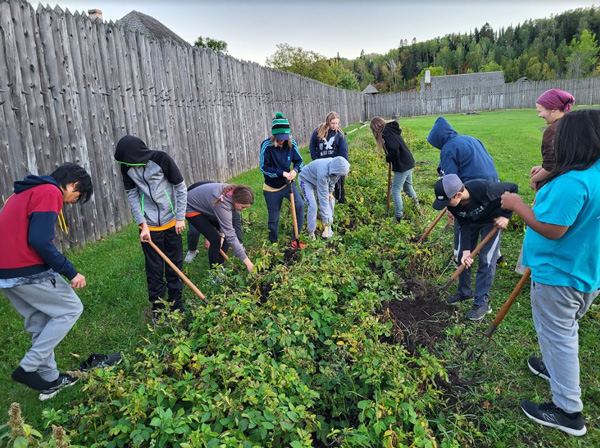
Literacy
In anticipation of the OHRC Right to Read Inquiry recommendations, KPDSB began a strategic plan implementing evidence-based approaches that emphasize direct, explicit, and systematic instruction and an understanding that reading comprehension is the product of word recognition and language comprehension. There has been a system-wide focus on building educator competency using structured, explicit, multimodal literacy practices, including phonemic and phonological awareness, decoding skills, and matching articulation of speech sounds/phonemes to the letters/graphemes that represent those sounds.
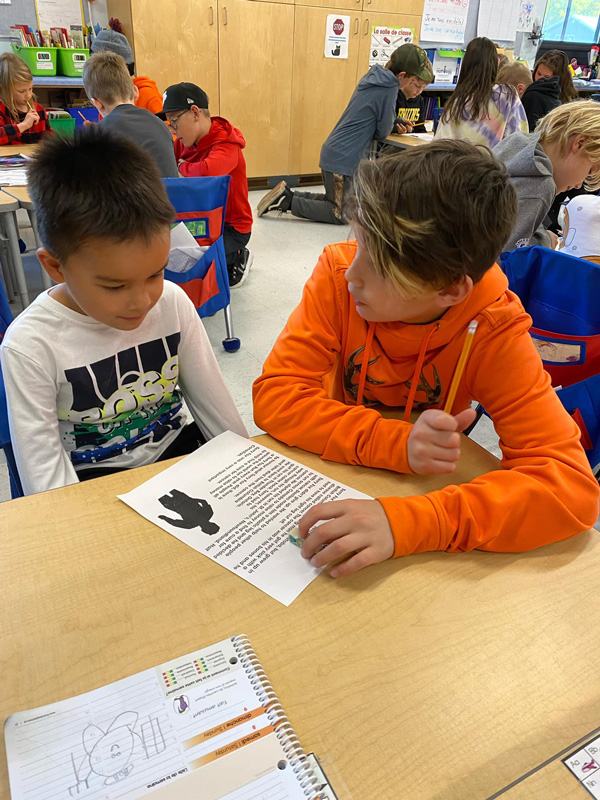
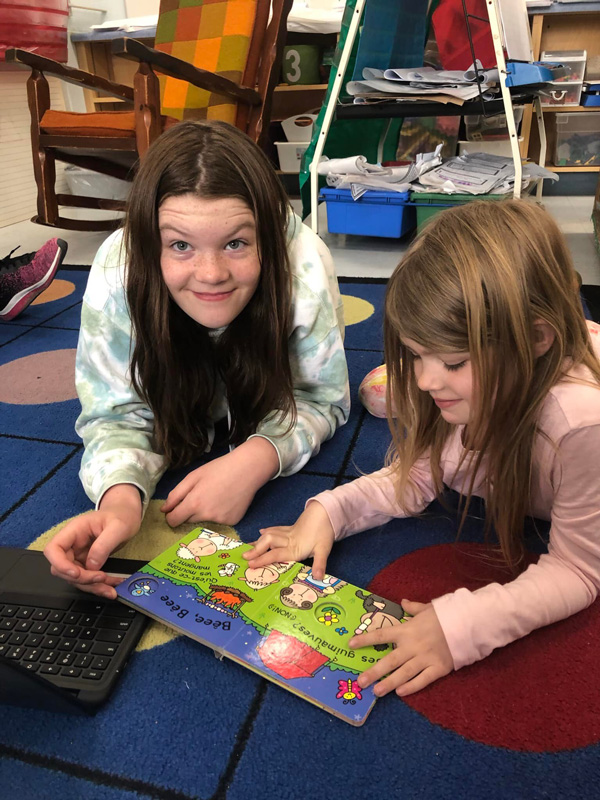
As a component of the strategy, practices were examined that historically have negatively impacted marginalized students. Through the work of destreaming, teachers were provided with increased opportunities to learn about differentiated instruction and universal designs for learning, examining, and changing processes that have impacted academic outcomes.
Over the past year, working with experts in the field in the area of structured literacy, a tiered instruction and intervention model has been built at KPDSB, providing teachers with a literacy screening tool, diagnostic assessments, instructional strategies, and interventions that target student needs, provide intervention, and aim to achieve maximum growth in learning for all students.
Numeracy
KPDSB continues to make numeracy achievement a strong focus. Now in our second year of implementing the new grade 9 Destreamed Mathematics course, students continue working on their math skills from their elementary programming while keeping future opportunities open. This course honours students’ cultures, identities, and different ways of thinking, problem-solving and viewing mathematics.
Secondary numeracy leads in each school meet regularly to plan and support teaching strategies such as curriculum spiralling, assessment for learning, and the KPDSB high-impact teaching strategies (HITS). They work on highlighting real-life connections to math and plan for system professional development in mathematics on topics such as coding. Supporting students to prepare for the Education Quality and Accountability Office (EQAO) Grade 9 Mathematic Assessment is also a priority. Universal design, differentiated instruction, effective math tools and resources, culturally responsive pedagogy, cooperative learning, and a focus on critical and creative thinking support student success.
Lesson labs for grade 7–10 math teachers are being supported by the central curriculum, instruction, and assessment team. These rich and collaborative learning experiences for teachers involve teams of teachers planning and delivering a lesson to a class and then reflecting, analyzing, and discussing the lesson and strategies, as well as their impact on student learning.
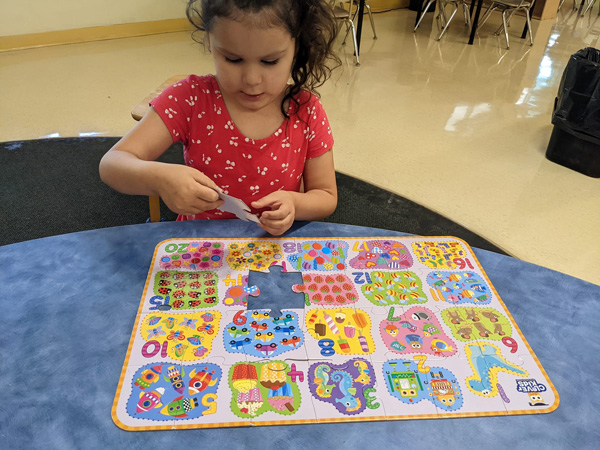
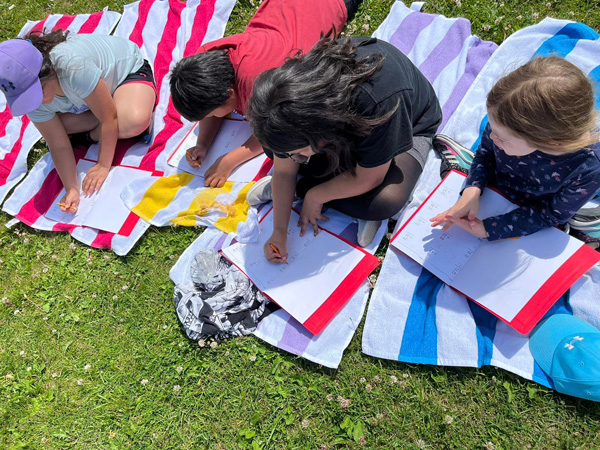
Entrepreneurship
Recognizing that entrepreneurship is on the rise and important to life in northwestern Ontario, one of the KPDSB elementary schools planned and hosted an entrepreneurship-focused Dragon’s Den project and subsequent competition during the spring of 2022. Two other elementary schools participated. This project involved presentations from local entrepreneurs and northwestern Ontario’s Head Start in Business organization, in addition to lessons from their Pathways teachers about key elements in business, such as marketing and finance. Students were challenged to showcase their creativity, ingenuity, and business sense by developing a business idea and then pitching it to judges who would determine the best ideas.
The theme for the project was “Imperishable Inventors” (sustainable, environmentally friendly inventions). When students worked on their prototype, it had to be made entirely of reusable or recycled products aside from glue, tape, and the like.
School-level competitions provided three representatives each for the area-wide competition. The winning projects were then judged by a team of local trustees, the leader of experiential learning, and a central administrator. It was a great, authentic, and engaging learning experience for grade 7 and 8 students!
In 2022–2023, entrepreneurship is extended to the Experiential Learning portfolio for students in grades 7 through 12.
Extended Year Programming
The Keewatin-Patricia District School Board offers extended learning programs to continue learning outside of the regular school day and to ensure that learning recovery programs are provided to students to improve student achievement. In multiple delivery models, programs were offered in 2021–2022 to support the continued development of academic and transferable skills, close achievement gaps, reduce summer learning loss, and prepare students for the 2022–2023 school year.
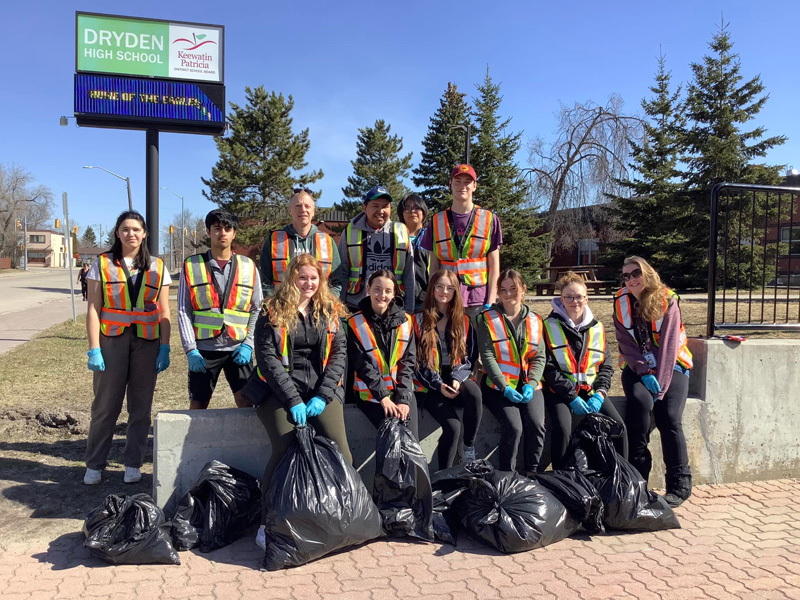
Fall/Winter Programming
Night School Cooperative Education
Students who were given the opportunity to participate in Night School Cooperative Education were those students attending Beaver Brae Secondary School, Dryden High School, and Sioux North High School with low credit accumulation, who may have been disengaged, or who may have required co-op for specific programs, such as Specialist High Skills Major. Cooperative Education allows students to participate in learning experiences that help them gain valuable work experience to help build a resume, prepare for the next stage of their lives (whether in apprenticeship training, college, community living, university, or the workplace), and understand employer and workplace expectations. 177 credits were achieved by 104 students through Night School Cooperative Education.
Spring Programming
Spring Reach Ahead for Grade 8 Students
For the second year in a row, KPDSB offered a central, blended synchronous and asynchronous, virtual Reach Ahead opportunity for all grade 8 students to support the transition to secondary school. Students from the Keewaytinook Okimakanak Board of Education were also invited to participate. The program was delivered by five KPDSB educators, and 92 students achieved their first secondary credit, Exploring Family Studies (HIF1O), while completing their grade 8 year. Both virtual and in-person tutoring were provided through the Rapid Response Northern School Team to support student success.
Summer Elementary Programming
Grade 6 Sports and Leadership Camp
Grade 6 Students were invited to participate in the KPDSB Grade 6 Leadership Camp, which was hosted in their respective local KPDSB High Schools in Kenora and Dryden. The camp examined various topics through the lens of healthy living, including participating in multi-sport sessions, exploring leadership qualities, preparing healthy foods, and discussions of planning for intramurals and tournaments. Students also explored their soon-to-be secondary schools and toured some programs offered to KP secondary students. Dryden and Kenora camps were led by qualified teachers and Indigenous student leaders from the Dryden High and Beaver Brae Secondary School 4D programs. The Beaver Brae program in Kenora and Dryden High School had 45 and 29 student participants, respectively.
Elementary CODE Summer Learning Programs
Five Elementary Summer Learning programs were run this year, with CODE funding four of those programs and KPDSB funding the fifth. Programs were run in four communities — two in Kenora, one in Dryden, one in Sioux Lookout, and one in Red Lake. Each program had full registration with 15–20 students. This year’s focus was on literacy, providing students with opportunities to participate in programming to develop their foundational literacy skills. Students also had numerous opportunities to build their skills in other areas, such as numeracy, physical education, science, and the social-emotional domain. Each program was led by a teacher and assisted by a post-secondary summer student. All the staff were trained in and supported with the delivery of instruction and evidence-based programming to greatly impact the students’ literacy development. Once again, daily nutrition was available for all students, and families had access to transportation.
Summer Secondary Programming
Stability Project
The Stability Project continued programming from 2021 to 2022 and expanded into a second KPDSB community. This project is a partnership between KPDSB, Kenora–Rainy River Children Services, and the Ministry of Child and Youth Services. The program is designed to support students who have been in care. It is an opportunity for students to participate in a paid cooperative education program, work with community partners, and develop personal skills and employability skills.
In Kenora, the Summer Garden Project built off last year’s success, with eight students completing the program this year. Students constructed, assembled, and maintained two garden locations and supported Women’s Place Kenora in their Garden Path program. Students completed micro-certifications to gain valuable personal and employability skills. Students also participated in an opening ceremony of the program with Elders and visited several local organizations that support youth over the summer.
The Stability program expanded in 2022 to include Red Lake High School students. Two students participated and completed cooperative education credits in the child care and hairstylist fields. Students were supported by the co-op teacher and 4D grad coach throughout the summer.
Both stability programs provided opportunities for students that were more than just measured in credits but will also have long-lasting effects as they move towards meaningful employment after high school.
Transition to Secondary Programs (Summer Reach Ahead for Grade 8 Students)
In-person Reach Ahead programs were offered in the first three weeks of the summer break at Dryden High School, Beaver Brae Secondary School, and Sioux North High School. Sixty students achieved their first secondary credit at this time. Similar to the online Reach Ahead program offered in the spring, these programs can help alleviate some of the stress and anxiety associated with transitioning to secondary school.
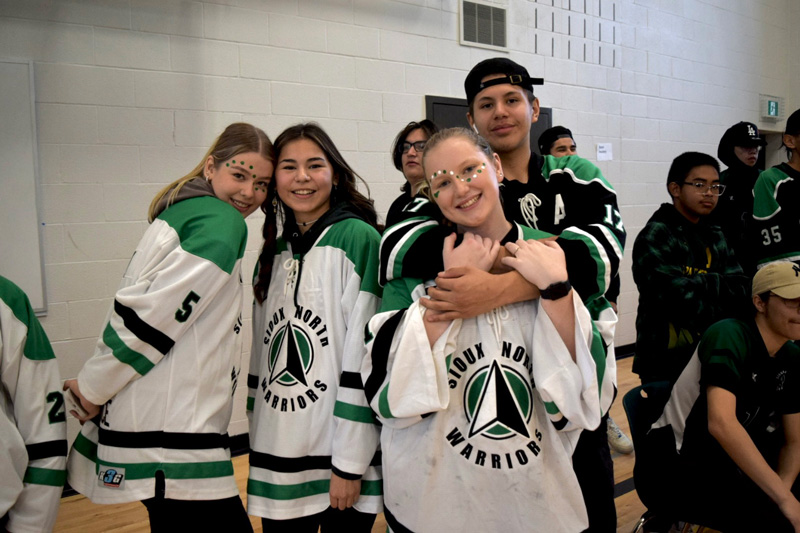
Beaver Brae hosted a Grade 8 Reach Ahead focused on land-based learning. Nine students participated in this program. All benefited greatly from the program — from transition opportunities to building relationships with 4D staff and high school teachers and connecting with important community partners and Elders. Students explored identity, cultural activities, and land-based education in a good way. Community partners, such as Kenora Chiefs Advisory, Ne-Chee, Kenora Youth Hub, and Seven Generations Education Institute, were integral to providing opportunities for students.
Other Credit Courses
One central section of virtual Career Studies (GLC2O) and one central section of virtual Civics and Citizenship (CHV2O) were offered in July. Any KPDSB secondary student who had not yet achieved these compulsory courses was able to register for this asynchronous program, which would also support them in meeting the new Ministry of Education eLearning requirement. In addition, one in-person section of the Native Studies course, First Nations, Métis, and Inuit in Canada, was delivered at Dryden High School. In total, 26.5 additional credits were achieved in these courses.
Summer Cooperative Education
Some secondary students from Beaver Brae Secondary School, Crolancia Secondary School, Dryden High School, Red Lake District High School, and Sioux North High School had the opportunity to participate in Summer Co-operative Education. This partnership between the student, school, student summer employer, and summer co-op teacher integrates academic study with practical work experience. Students who had the opportunity to participate in Summer Co-op were those with low credit accumulation, who may be disengaged, or who may require co-op for a specific program such as Specialist High Skills Major. In Summer Co-operative Education, 304 credits were achieved by 164 students.
Credit Recovery
Through credit recovery, a student is offered an opportunity to meet the expectations of a course they have completed but for which they had received a failing grade. Dryden High School, Red Lake District High School, and Sioux North High School accessed tutoring funds that the Ministry of Education provided in the 2021–2022 school year to support students in recovering credits, in-person and virtually, in July. Sioux North High School offered two credit recovery programs, one at the high school and one in-person program at Lac Seul First Nation. Red Lake District High School offered support in both Red Lake and Ear Falls. In total, 37 KPDSB credits were recovered in July.
Additional Supports for Students in Extended Learning Programs
In addition to the support provided by tutors, education assistants, and Four Directions staff, student mental health services were offered for July and August. Two student counsellors were available to provide virtual and phone services to students who reached out for support.
The KPDSB extended learning programs support students in building knowledge and skills, building relationships with staff, developing new friendships, developing confidence, and preparing for the upcoming learning period. These programs and associated supports continue to contribute to our students’ success as they work toward graduation and many post-secondary opportunities.
Adult Education
In September 2012, the Keewatin-Patricia District School Board and Seven Generations Education Institute partnered to deliver adult education throughout Northwestern Ontario. The goals of the partnership include:
- Increasing opportunities for indigenous and non-indigenous adult learners throughout the KPDSB and SGEI communities to achieve the Ontario Secondary School Diploma (OSSD)
- Improving access for adult learners to high-quality curriculum resources on a full- or part-time basis
- Committing to excellence and innovation in serving the adult learners’ needs
We have worked cooperatively to share our partnership work at CESBA (Continuing Education School Boards Association), presenting, sharing, and advocating for quality regional Adult Education programs. We formally recognize SGEI as our partner in Adult Education and have highlighted the unique and complex nature of the Kenora/Rainy River regions west of Thunder Bay, including the inclusion of Indigenous partners and the importance of these partnerships beyond the traditional school board funding models. We have shared our successes and learnings from our KPDSB/SGEI Adult Education Partnership Graduate Exit Survey:
- Over 30% of our adult students are over 35 — it’s never too late to earn your diploma.
- Fifty-nine percent of our students self-identify as FNMI, and 25% of our students speak Ojibway or Oji-Cree at home — our Language Circles are key to language preservation and developing a sense of culture and belonging in our Adult Education classrooms. Adult students earn language credits for participating or speaking their language.
- The majority (>75%) of our students are highly motivated to earn their diplomas. Over half of our students only have 5–6 credits left to earn and spend less than six months with us to meet their diploma requirements — most of our students are closer to graduation than they think! Sixty-seven percent of our graduates identify maturity and a sense of responsibility to family as critical to helping them graduate.
- Our Adult Education programs change lives — 58% of our students are headed off to college or post-secondary education.
During the 2021–2022 school year, 599 adults registered in our Adult Education programs, and we worked cooperatively as administrators, teachers, and site monitors to offer a variety of programs and support. At our fastest-growing site, the Sioux Lookout Adult Education Program, we host full-time teacher and site monitor support in a family-friendly, comfortable adult-learning environment.
Continued relationships across the KPDSB region with educational, community, and agency-specific partners assist in providing wrap-around support that reduces barriers for our adult students. Our partners include the Kwayaciiwin Education Resource Centre, Sioux Lookout Area Aboriginal Management Board, Ontario Native Women’s Association, Independent First Nations Alliance, Adult Basic Literacy Programs, Indian Friendship Centres, Northwest Employment Works, Ontario Works, Supportive Housing, Homeward Bound Program, the Métis Nation of Ontario, Lac Seul First Nation, Ministry of the Attorney General, women’s and homeless shelters, regional mental health programs, and many others. We continue to develop and strengthen partnerships in municipalities and First Nations communities to improve access and support to our adult learners in response to new or emerging needs to guarantee positive outcomes and improve life skills for our learners.
Adult Education Website
Launched in 2020, our new website continues to be a very popular and convenient resource for busy adult clients across the region for Adult Education registration, promotion, information and pathway guidance (www.nwoadulted.com). Housed online in a web-based portal, potential students can access site-specific Adult Education programs, graduate success stories, information about our KPDSB/SGEI partnership, post-secondary opportunities, an Adult Education credit calculator, and contact information for our Adult Education sites.

Adult Education Dual Credit Opportunities
The 2021–2022 dual credit opportunities support transitions to college programs and are engaging and motivating for adult students interested in post-secondary programs in our communities. With Confederation College, we offer a dual credit in which all of our Adult Ed sites can participate jointly. Dual Credit PPI4T–Wellness for Life through Confederation College will be offered online virtually to all Adult Ed sites. The major areas of study for the wellness for life course are physical, social, intellectual, occupational, emotional, environmental, and spiritual dimensions of health. This topic was popular considering the struggles adult learners have experienced following the pandemic.
Red Lake Expansion
We continued our expansion of Adult Education services in the two sites in Red Lake (Red Lake Adult Literacy Centre and the Red Lake Indian Friendship Centre). Both offer day-school adult courses and after-school tutorial services for RLDHS students and OSSD credit opportunities for their parents. We continue to see an increase in both the number of registrants and our potential graduates.
MAG–Bail Residency Program
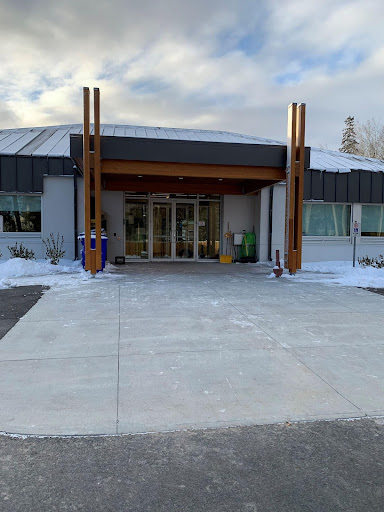
The Adult Ed partnership continues to work with community partners to improve our region’s services. In partnership with the Ministry of the Attorney General (MAG), KPDSB and SGEI support an Adult Education classroom within the new Justice Centre pilot in Kenora. In spring 2022, the program produced six graduates. In the 2021-2022 school year, the Adult Education Partnership served 34 adult clients through the NeeChee Bail Residency Program. Registration and credit completion is ongoing with this program throughout the school year.
KAE Mental Health Videos
We understand that in the interests of mental health, it is important to reach out to our adult learners — who are very busy navigating through adulthood while at the same time finding the time to work towards completing their high school diploma or upgrade — on an annual basis. Our Adult Education team continues to reach out to our students who might be experiencing the usual demands of adult life but also continuing to navigate Covid, the return to the workplace, and home and in-class schooling. Sherice Nordlund, Site Monitor for Kenora Adult Education, participated in a series of mental health interviews with Alexis Doerksen, a KPDSB student counsellor. The resulting documentary videos address a number of very helpful topics that highlight the importance of continuing your education during difficult times and the health and safety and precautions enacted at our sites, and they provide valuable information about the support our program offers. The video clips can be viewed on our social media forums. https://www.facebook.com/– Adult Education KPDSB & Seven Generations FB Page.
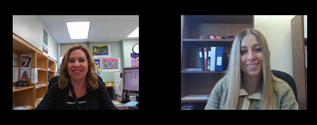
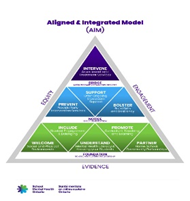
SCH4U and ENG4C Teacher-Led Classes Offered via Zoom and Brightspace
In spring 2022, Adult Education continued its efforts to provide flexible course delivery options to support the needs of adult students who are learning, working, and juggling the demands of everyday adult life by offering ENG4C and SCH4U through Zoom and BrightSpace. The ENG4C Google classroom was delivered from the Lac Seul SGEI classroom to each of our sites, and SCH4C was offered from the Kenora SEGI classroom to all KAE sites. Our online course offerings, which were a combination of teacher-led and independent, allowed students to access netbooks for online courses, work in Google Classroom from home, or visit one of our four largest classrooms with portable web-conferencing systems that permit students in multiple sites to access a single class virtually.
End-of-Year Celebration in Sioux Lookout
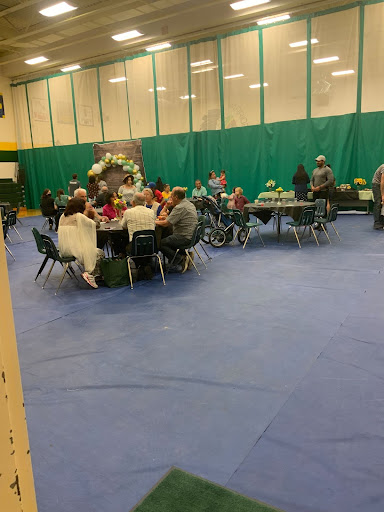
On June 17, 2022, our Sioux Lookout site hosted an end-of-year celebration for graduates from not just 2021–2022 but also 2019–2020 and 2020–2021. We wanted to give them all the opportunity to celebrate their accomplishments and hard work at our Sioux Lookout site with family and friends. It was wonderful to see graduates from the previous two years return to participate in person. They gathered for an evening of fellowship with recent grads and their peers. Students enjoyed catered appetizers, beverages, and decadent cupcakes, all provided by local small businesses.
DCO30 Co-Op Credit for Adult Education
There are co-op teachers at each of our community sites. Adult students can access Co-Operative Education credit opportunities to meet their OSSD requirements. The opportunity for busy adult learners to receive co-op credits towards their OSSD while working to provide for themselves and their families has proven to be a valuable addition to the Adult Education program.

Graduation
The 2021–2022 school year ended with the first face-to-face celebration in three years. Forty-six adult students earned their OSSDs. At this year’s graduation ceremony, the Brian Booty Memorial Bursary — named in honour of Brian Booty, who spent many years teaching and supporting learners of all ages — was awarded to Alice Keesic. Despite the many obstacles Alice experienced in her life and in her journey to receive her OSSD, she never stopped trying, demonstrating perseverance and the ability to deal with challenges while always retaining a sense of humour. These are all important qualities and strengths that the recipient of this special award and bursary should have.
2022 Valedictorian at the Adult Education Partnership Graduation — Percy Cameron
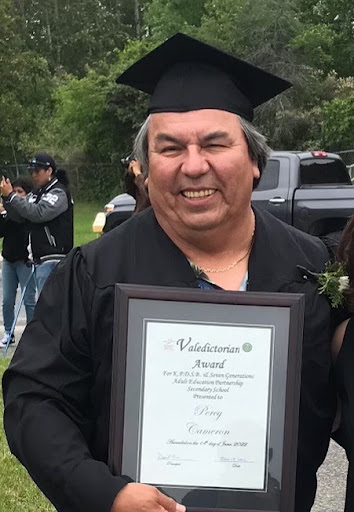
Percy Cameron was chosen as valedictorian for the 2021–2022 school year to spread his inspirational message. As a survivor of addictions, trauma, and abuse for over 20 years, he feels passionate about obtaining his OSSD — the missing piece of his educational accomplishments. His dream is to work independently as a motivational speaker while maintaining a healing journey of sobriety. The opportunity to share his wisdom and strength with his fellow learners is a natural next step as he is an accomplished writer, a published author of a book of poetry, and a practicing counsellor who relies on his faith, humour, and positive outlook to impart his message of hope and healing.
Math AQs for Educators
KPDSB was excited to announce a partnership between the Keewatin-Patricia District School Board and Lakehead University to provide Math AQs to educators across the system. These courses give participants the knowledge and skills to create a dynamic community of mathematicians in KPDSB classrooms. Completing either of these courses will broaden educators’ understanding of mathematical concepts so they can determine their students’ abilities and design lessons to meet their needs. This cohort is offered exclusively to permanent teachers of the Keewatin-Patricia District School Board. Both courses are instructed by proficient KPDSB math educators. They are provided to staff using Math AQ funds provided by the Ministry of Education.
